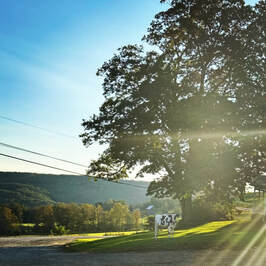CONSERVATION CORNER
A weekly blog for all things conservation
|
Kevin Brown- BCCD, Ag Resource Specialist
For a recap on the first article- What is causing the impairment of streams in the state? Ag takes a lot of the blame (75% worth), but is that where the focus should be? In round 1, I wrote about the correlations of population density to impaired streams (82%) and cattle density to impaired streams (53%). People seem to be much more correlated with it. As I was explaining this to a counterpart of mine, she said, “Well the people that I have worked with have attempted to make the connection between tree canopy and impaired streams”. That was a new take on it, and I had to run right back to my office and get working on those numbers. Again, some very interesting numbers came out.
0 Comments
Kevin Brown- BCCD, Ag Resource Specialist
Last week’s article from Miranda seemed to be a nice segway into something I have been working on lately. We here at the District focus on clean water- keeping clean water clean, and attempting to take “dirty” water and make it clean before it heads downstream. The first one is easier, usually. We use all tools available to get it done- gutters, diversion ditches, drop boxes, etc.- to take clean water, and divert it around areas that could potentially pollute it. Cleaning the water can sometimes be a bit more complicated than keeping it clean in the first place, but not always. What is Mother Nature’s way for cleaning water? Filtering it, just like we would do. How does she filter it? Soil! Lots of living, breathing, water infiltrating soil. If we take water that is laden with nutrients or sediment, and run it through some really good soil, it comes out the other end- clean. It’s magic. However, that means you have to have some good soil that water can infiltrate and clean it as it goes through it.  Miranda Neville, Agricultural Resource Specialist, BCCD “I only have 2 horses. I’m not a farm. Do I need a Manure Management Plan?” In an effort to reduce nutrient loads in the Chesapeake Bay, the Department of Environmental Protection (DEP), has been conducting agricultural inspections on any operations that have livestock/production animals, (yes…even a few chickens) over the past several years in all counties within the Chesapeake Bay watershed. DEP requires operations that have livestock, land apply manure, or do any tillage to crop ground to have a Manure Management Plan and/or an Agricultural Erosion and Sediment Plan. Bradford County is included in the Bay watershed. Bradford County is included in the Bay watershed. By this point, the majority of our farms are aware of the visits and planning needs, but those who may not classify themselves as ‘farms’ may not know that they need a Manure Management Plan. |
AuthorsVarious staff at the Bradford County Conservation District Archives
July 2024
Categories
All
|
|
Bradford County Conservation District
Stoll Natural Resource Center 200 Lake Road, Suite E | Towanda PA 18848 Phone: (570)-485-3144 |
